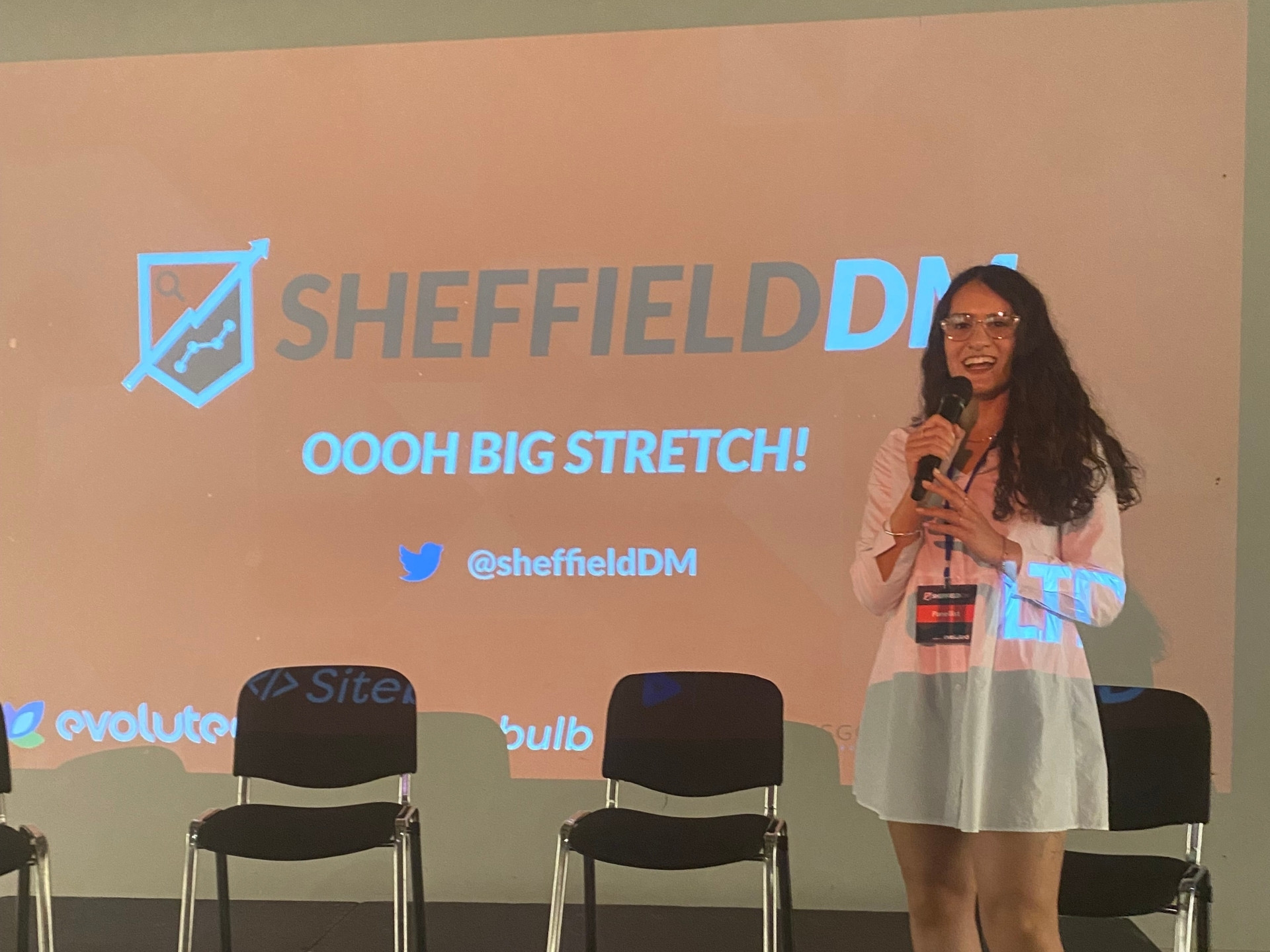With a passion for both Digital PR, Diversity and Inclusion, as the PR Lead at Digital Ethos, I headed to Sheffield DM this month to take part in insightful panel talks with other industry leaders.
First took part in the “Straight Talking Digital PR” panel with Beth Nunnington and Jasmine Granton. The aim of the panel was to delve into key topics from the industry and share insight on which strategies and tactics are working well for our clients at the moment.
Creating a Digital PR strategy and measuring the results
When it comes to the tactics used to achieve results in Digital PR, the industry has certainly seen a shift compared to the methods we used before the pandemic. One of the most important talking points for me was the layered strategy we prefer to adopt for our clients, focusing on reactive and proactive PR to achieve our goals.
It is critical to avoid putting all your eggs in one basket where possible for PR. This was something all panel members agreed on, with a layered strategy allowing for multiple activity points within a given month.
When it comes to link targets, on the panel, we had a similar mindset, where it is crucial to focus on the importance of measuring wider metrics than simply link numbers. With the opportunity to measure shared goals such as keyword rankings, traffic and sales, we have reached a point where measuring the success of Digital PR with simply link numbers is no longer doing it justice.
Delivering ethical PR in the age of doomscrolling
An important topic which we touched upon on the panel was how Digital PRs could stay on track in delivering ethical PR in an age where we see an increasing amount of fake news. At Digital Ethos, we have team members with experience in crisis communication, giving us an in-depth understanding of the best type of messaging to send out on behalf of brands.
On the panel, I expressed the importance of making sure that individual agencies can regulate the content they are putting out there to ensure it is content that they and their client are proud of.
Careers in Digital PR
Lastly, the panel discussed careers in Digital PR and the importance of personal branding as part of the job. Personal Branding has certainly become a buzzword within the industry and has the ability to help employees build their confidence, learn new skills and boost the profile of their employer.
The main message from myself and the panel was that personal branding should be entirely optional for employees. While creating a social account and speaking at conferences can be an invaluable experience for Digital PR employees, it is not something employees should be instructed to do; rather, it should be something they are supported to do if they wish to follow that path.
The next pane discussed Diversity and Inclusion, where I joined Rejoice Yates, Thierry Allen, and Khushal.
Firstly, we discussed the definition of diversity and inclusion, tapping into what this means within the workplace. Diversity in a workplace exists where there is an environment intentionally created which comprises individuals with a variety of characteristics. Inclusion exists where individuals have equal opportunities in those environments, feel confident and comfortable to be themselves, and are valued.
To put it simply, diversity is being invited to the party, and inclusion is feeling like you belong at the party.
During the panel, we discussed tokenism and the importance of companies ensuring they are not simply hitting checklists. Instead, employers need to ensure their employees from diverse backgrounds feel equally valued. To achieve this, the panel discussed the importance of listening to your employees and ensuring you are an ally who uses their credibility to create a more inclusive environment where everyone can thrive.
The panel touched upon their personal experiences with D&I and the proactive ways businesses can source candidates from underrepresented communities. Two useful communities for employers to reach out to are BDigital and Women in Tech SEO, where they have the opportunity to publicise job roles in front of a wider candidate pool. The importance of supporting underrepresented communities in other ways was encouraged, with the potential for mentorships or free courses for those looking to upskill in digital marketing.
Lastly, the panel discussed whether the industry is truly ready for diversity and inclusion. My personal perspective is that in order to create real change, we must first focus closer to home on our own actions, the actions of our agency and the actions of our peers. If we do this as a collective, in turn, the industry will see an active change occur.

